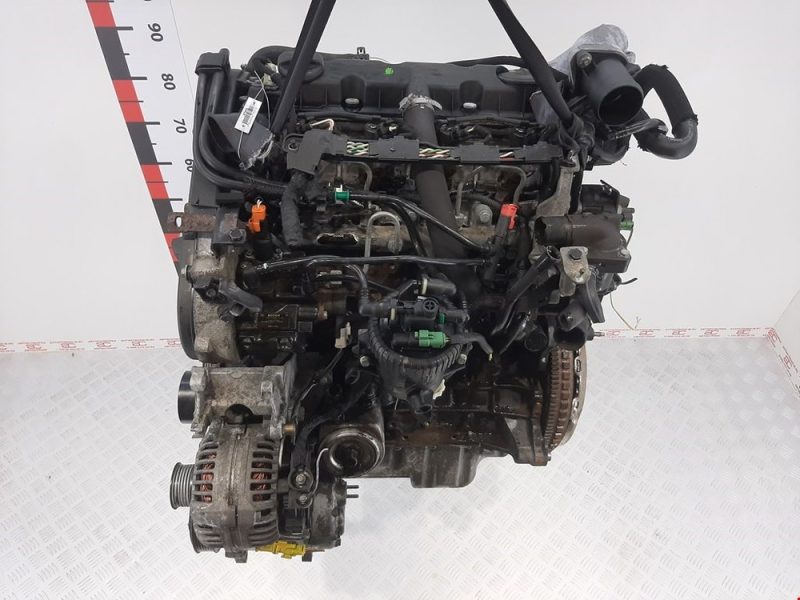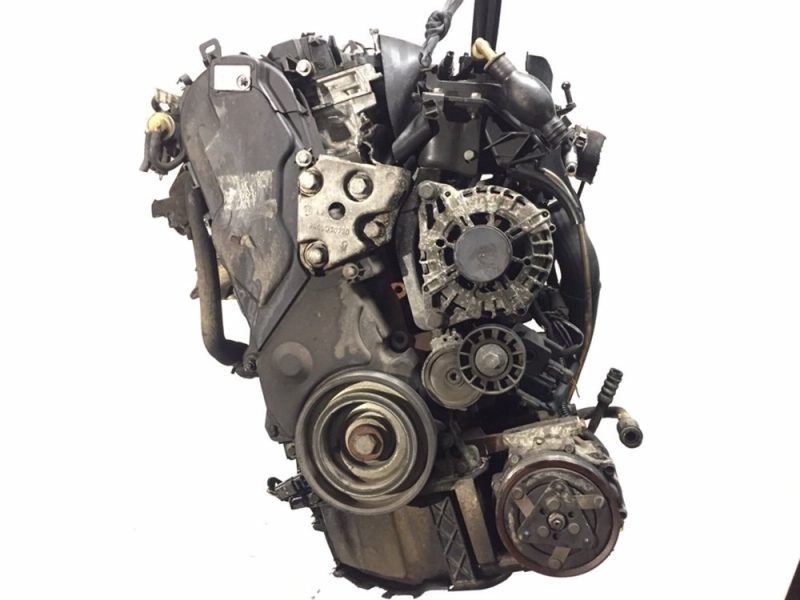The 2.0-liter diesel engine Peugeot DW10ATED or RHZ was produced from 1998 to 2004 and was put on many mid-size models of the concern of its time, such as 307, 406 and 607. There was a modification of the engine for commercial vehicles with its own index DW10UTED.
Technical characteristics
| Parameter | Value |
|---|---|
| Exact volume | 1997 cm³ |
| Power system | Common Rail |
| Engine power | 105 – 110 hp |
| Torque | 245 – 255 Nm |
| Cylinder block | Cast iron R4 |
| Cylinder head | Aluminum 8v |
| Cylinder diameter | 85 mm |
| Piston stroke | 88 mm |
| Compression ratio | 17.6 |
| Engine features | Intercooler |
| Hydrocompensators | Yes |
| Transmission timing | Belt drive |
| Fasoregulator | No |
| Turbocharging | Yes |
| Oil | 4.5 liters 5W-40 |
| Fuel type | Diesel |
| Environmental class | Euro 3 |
| Example service life | 400,000 km |
| Engine weight | 160 kg |

The Peugeot DW10ATED engine, with a displacement of 2.0 liters and an output of 105 to 110 hp, was one of the key units for Peugeot and Citroën cars in the late 1990s and early 2000s. This engine was also used in some Suzuki models. In this article, we will take a look at which cars the DW10ATED was fitted to and discuss the main problems and drawbacks of this engine.
Cars equipped with DW10ATED engine
The DW10ATED engine has been fitted to a number of models from both Peugeot and Citroën, as well as Suzuki. Here is a list of the most popular cars that were equipped with this engine:
- Peugeot 307 I (T5/T6): Produced from 2001 to 2004
- Peugeot 406 I (D8/D9): Produced from 1999 to 2004
- Peugeot 607 I (Z8/Z9): Produced from 1999 to 2004.
- Peugeot 806 I (U60): Produced from 1999 to 2002.
- Citroën Xantia I (X1/X2): Produced from 1998 to 2001.
- Citroën Xsara I (N6/N7): Produced from 1999 to 2001.
- Citroën C5 I (X3/X4): Produced from 2000 to 2004.
- Citroën Evasion I (U60): Produced from 1999 to 2002.
- Suzuki Grand Vitara: Manufactured from 1998 to 2003.
Disadvantages and disadvantages of the DW10ATED engine

Although the DW10ATED engine has good performance characteristics, owners often encounter certain problems. Let’s consider the main ones:
- Crankshaft Pulley: In the early models of this engine, problems with the crankshaft pulley were not uncommon. The pulley could wear out or fall apart, requiring it to be replaced. This requirement led to frequent owner calls to service centers.
- Electric Boost Pump: The electric pump in the tank responsible for fuel delivery has a limited life and often failed. This could cause problems with engine starting and idling.
- Fuel Pressure Regulator: The fuel pressure regulator was also a frequent source of problems. It could become clogged, causing it to malfunction. Problems with the fuel pressure regulator can cause erratic engine performance and poor fuel economy.
- Fuel Filter Replacement: Failure to replace the fuel filter on a regular basis can cause it to clog and result in fuel supply and engine performance problems. Regular filter replacement is necessary to maintain engine reliability and longevity.
- Particulate Filter: Some engine modifications have been fitted with a particulate filter, which can cause additional problems. A clogged particulate filter leads to loss of power and increased fuel consumption. Regular inspection and maintenance of this component can help avoid problems.
